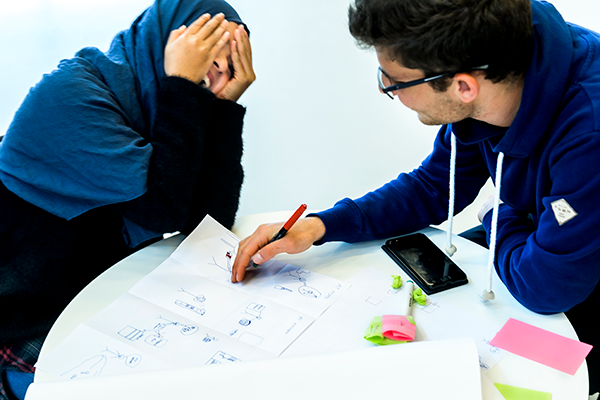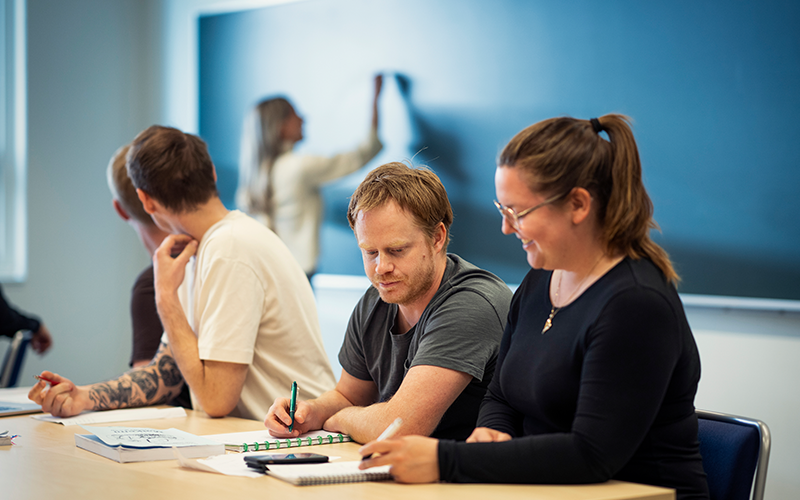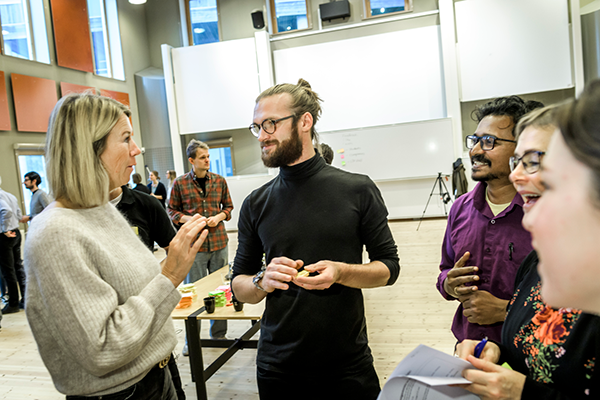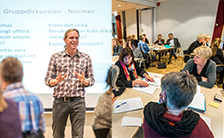Education
Design sciences offer courses and programs in many subjects, such as ergonomics and aerosol technology, packaging logistics, industrial design, innovation engineering, product development, rehabilitation engineering and universal design.
Within the various parts of the department, we work with sustainable development and the ambition is for circular thinking to be a natural part of the students' future professional life.
Design sciences divisions and the courses they give are presented below.
Ergonomics and aerosol technology
Work is central in the lives of most people and has significance for an individual’s identity. To understand how people at work interactive with each other and with technology requires knowledge from many different fields. This is the case no matter if you work in healthcare, social services or heavy industry. Among the many factors that determine how a work environment comes into being, technology and its design often play a decisive role. It is important that engineers and designers early on in their training are given the opportunity to study the work environment area.
Future professionals in engineering as well as industrial design graduates will also be expected to take into account people's different conditions and abilities when products, services and environments are designed.
Ergonomics and aerosol technology offer courses in the following areas: Work and health, architecture and design, interaction design, air pollution and health risks, organization and leadership, rehabilitation engineering, risk management, thermal environment, universal design and virtual reality.
Read about courses given by Ergonomics and aerosol technology.
Industrial design
Industrial design means participating in the whole process around product development, from idea to final form. This requires fresh knowledge and awareness in many different areas. The industrial designer should also be able to reflect on cultural and technological shifts in society. A stronger connection between aesthetic, technological, industrial and economical aspects has become necessary.
The education is divided into two parts. A three-year industrial design programme leading to a Bachelors degree worth 180 credits (Bachelor of Arts in Industrial Design). You can then apply for a Master’s programme worth 120 credits (2 years), leading to a Master’s degree (Master of Arts in Industrial Design).
Innovation
In a world that is constantly changing, it is important to understand how change processes work and can be driven from multiple perspectives. The interdisciplinary courses offered by Innovation focus on change processes and are based on user perspectives, technological development, business development or political decisions. The courses are organised into different areas: Product development focusing on design, materials and circularity; Digitalisation and emerging technologies; Innovation and entrepreneurship; Industry transformation.
Packaging logistics
The role of packaging is becoming increasingly important and companies have started to realize that packaging can do more than just protect and promote products. Our courses provides students with extensive competence about packaging including everything from a basic understanding of packaging functions, properties, production and use to deep insights about how packaging affects logistics and transportation in supply chains.
In all our courses, you work actively in projects with companies where you learn how to develop consumer packaging and packaging systems based on a holistic perspective and the latest research results. Several approaches and methods are introduced and used in our courses to provide students with powerful tools and a knowledge basis that they can practically apply in industry.





